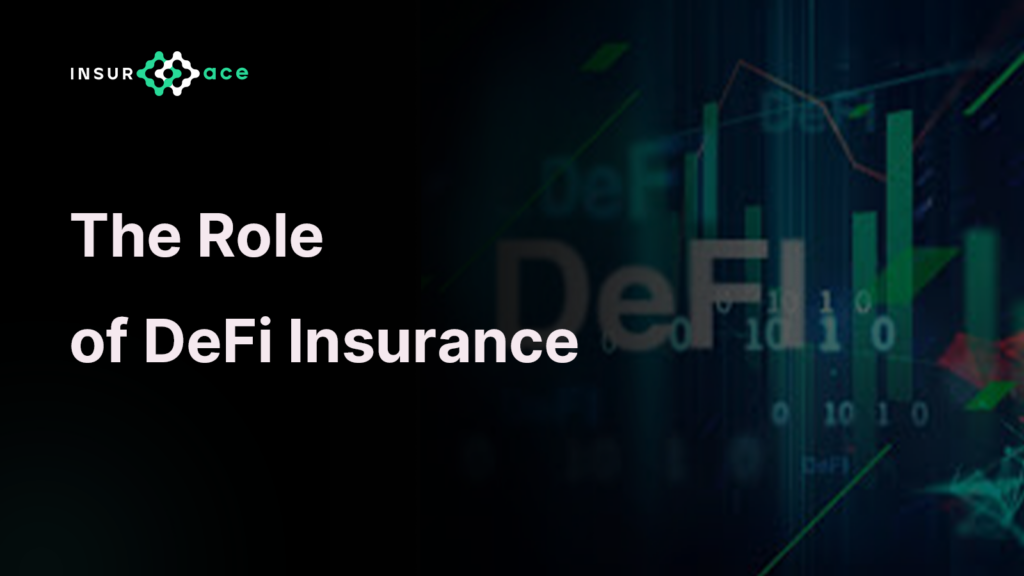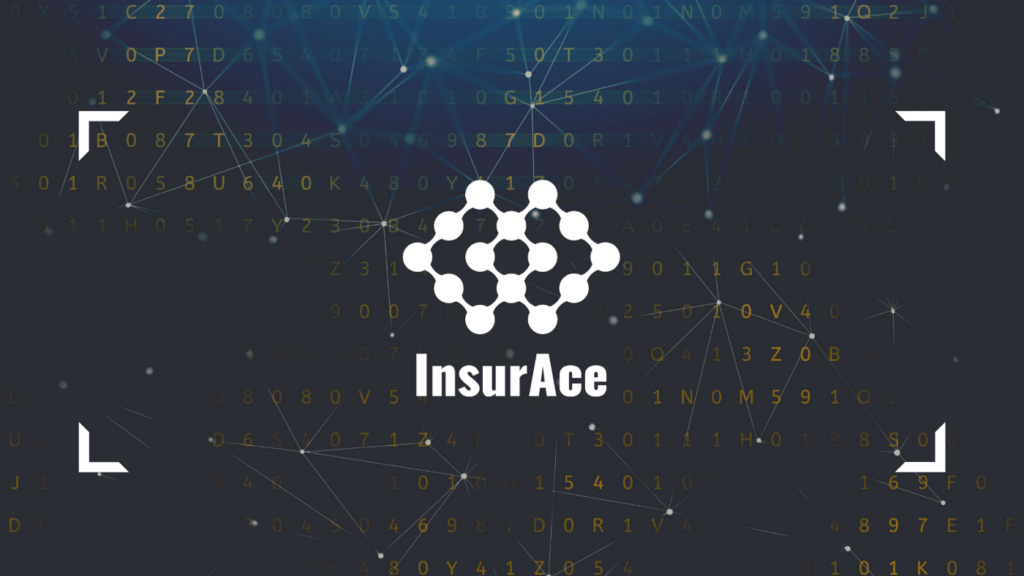DeFi is risky business
In an increasingly digitized world, Decentralized Finance (DeFi) stands as one of the most disruptive and promising innovations. As a radical departure from traditional banking systems, DeFi leverages blockchain technology to create financial services that are open, transparent, and accessible to all. Yet, as DeFi continues its meteoric rise, it has been accompanied by a parallel increase in security risks. From smart contract vulnerabilities to protocol hacks, the issues are real and substantial, often leaving users with significant losses. Here lies a pivotal role for insurance – a time-tested solution now being adapted for the digital age. DeFi insurance can act as a safety net, providing a level of security and assurance that is becoming increasingly essential in this rapidly evolving space.
The Landscape of DeFi
DeFi, short for Decentralized Finance, represents a vast, complex ecosystem that is designed to mirror and improve upon the offerings of traditional financial institutions, but without the central authority. From lending and borrowing platforms to decentralized exchanges (DEXs) and yield farming protocols, DeFi is recreating the financial world on blockchain technology. This landscape is growing at an unprecedented pace; billions of dollars are now locked in various DeFi protocols, illustrating the level of trust and interest in these platforms.
However, with such rapid expansion comes a proportional increase in risks. Security in DeFi is of paramount concern. Smart contracts, the self-executing contracts with the terms of the agreement directly written into code, are central to DeFi’s operation. Yet, they are not infallible. Bugs in the contract code or unforeseen interactions between contracts can lead to significant vulnerabilities. We’ve seen this play out in real-time with numerous hacks and exploits, where individuals or groups have siphoned off millions of dollars from DeFi protocols due to these vulnerabilities.
This evolving landscape demands a robust response, and insurance is increasingly viewed as a key component of that strategy. Just as insurance in the traditional finance world safeguards individuals and institutions from various forms of risks and uncertainties, DeFi insurance can provide similar protection. It creates a layer of security that is vital for the long-term credibility and sustainability of decentralized finance.
Understanding DeFi Insurance
In the complex web of decentralized finance, DeFi insurance emerges as a beacon of security and assurance. But what exactly does DeFi insurance entail? Essentially, it is a cover that participants in the DeFi space can purchase to protect themselves against financial losses due to smart contract failures, hacking attacks, or other protocol errors. It functions similarly to how a traditional insurance policy works – users pay premiums in order to get coverage against specific risks.
However, DeFi insurance diverges significantly from its traditional counterpart in several key aspects. Most notably, it is inherently decentralized and often managed by the community of policyholders. This structure allows for a transparent and tamper-proof claim assessment process. Additionally, the absence of intermediaries cuts down operational costs, enabling lower premium rates and higher efficiency.
DeFi insurance isn’t a one-size-fits-all solution. There are different types of policies available, catering to various needs. Smart contract cover is the most common, protecting users from vulnerabilities in a smart contract’s code. Stablecoin insurance and exchange insurance are other examples that safeguard against the insolvency of stablecoin issuers or exchange platforms, respectively.
As DeFi continues to evolve, so does the insurance that protects its users. It is a rapidly growing field, populated with innovative companies that are developing unique products designed to shield investors from the numerous risks associated with DeFi platforms.
Why Insurance is Critical for DeFi Security
The explosive growth of DeFi brings along with it a host of opportunities – and a multitude of risks. The decentralized nature of DeFi platforms, while one of its strongest features, is a double-edged sword. It relinquishes control from a central authority but also places substantial responsibility on the individual user. Here, insurance doesn’t just play a supportive role; it is fundamental to the architecture of secure, sustainable decentralized finance.
Take, for instance, the numerous instances where security breaches in DeFi protocols have led to catastrophic losses. Had insurance products been more widely adopted, the impact of these breaches could have been significantly mitigated, restoring funds to users and maintaining confidence in the DeFi space.
Insurance brings a sense of reliability to DeFi platforms. Knowing that one’s investments are protected by a robust insurance policy can make the difference between an individual choosing to participate in DeFi or not. It’s not just about the protection of funds; it’s about creating an environment in which users feel safe to invest and interact.
Furthermore, insurance in DeFi acts as a signal to regulators and traditional finance players. It shows a level of maturity and risk management that could accelerate the integration of DeFi with mainstream finance. It serves as evidence that DeFi is more than a volatile, risky frontier—it is an evolving, maturing sector with mechanisms in place to protect its participants.
In an age where security breaches and contract failures are not uncommon, insurance stands as an indispensable tool for individuals who seek to navigate the DeFi landscape with confidence and peace of mind.
Current Players and Products in the DeFi Insurance Space
The DeFi insurance market is burgeoning with innovative companies striving to provide robust safety nets for investors. Among these, InsurAce stands as a pioneering entity, offering a decentralized alternative to insurance. Bright Union provides insurance aggregating services, while Sherlock aims to offer insured auditing services to clients.
Each player approaches DeFi insurance with unique strategies and models. For example, InsurAce utilizes a risk-sharing pool that allows members to pay premiums and submit claims in a transparent manner. In contrast, Risk Harbour has parametric payouts leading to immediate payouts.
As the DeFi space matures, these insurance providers are constantly iterating on their products, seeking to provide more comprehensive and user-friendly solutions. Their growing presence is a testament to the recognized need for insurance within the booming DeFi industry.
Challenges and Controversies Surrounding DeFi Insurance
While DeFi insurance promises to significantly bolster security within the decentralized finance space, it isn’t devoid of hurdles. Regulatory challenges are a prominent concern. Since DeFi insurance is a novel concept, existing regulations may not apply seamlessly, and new frameworks are necessary.
The decentralized nature of these systems complicates the risk assessment and pricing models. Traditional insurance relies heavily on historical data and clear legal frameworks, which are often absent in the DeFi space.
Additionally, controversies have arisen. Cases where claims were denied due to ambiguities in policy terms or disputes over the assessment of a security incident have sparked debates within the community.
These issues underscore the need for DeFi insurance to evolve in tandem with regulatory bodies, ensuring that it can fulfill its promise of enhancing security without becoming mired in legal complexities.
The Future of DeFi Insurance
As DeFi continues to chart its course into mainstream finance, the role of insurance within this space is likely to become increasingly pivotal. We can anticipate innovations that make policies more affordable, accessible, and tailored to individual needs. Peer-to-peer insurance models, decentralized autonomous insurance, and integrations with traditional insurance companies are potential directions that this industry might explore.
Moreover, as regulatory bodies become more acquainted with DeFi, we may see the development of more defined and supportive legal frameworks that encourage the growth and stability of DeFi insurance.
The future appears bright but is contingent on collaboration between DeFi insurance providers, regulatory bodies, and the broader DeFi community. Together, they can build a secure, sustainable, and vibrant ecosystem that retains the decentralized ethos of DeFi while instilling confidence and reliability in its participants.
Conclusion
As we navigate deeper into the digital age, the promise of DeFi stands clear — offering a democratized, transparent, and efficient alternative to traditional financial systems. Yet, as this brave new world of finance expands and evolves, so too do the risks associated with it. Security, a cornerstone of any robust financial system, is taking center stage in the DeFi conversation.
In this context, insurance emerges not as a mere afterthought but as a foundational element of the DeFi ecosystem. As we have explored in this post, DeFi insurance is evolving to address the unique challenges posed by decentralized financial systems. It offers a compelling solution to mitigate risks, safeguard investments, and ultimately, foster confidence in a space that is replete with both immense potential and notable hazards.
Looking forward, as DeFi continues its journey towards mainstream acceptance and integration, insurance is likely to play an increasingly critical role. It will be the harbinger of security and stability in a world that is defying the norms of finance as we know it. By bridging the trust gap and establishing a robust safety net, insurance stands poised to unlock the true potential of DeFi, enabling it to flourish as a secure and reliable financial frontier for the future.
Join the InsurAce community:
Telegram: https://t.me/insurace_protocol
Twitter: https://twitter.com/InsurAce_io
Email: contact@insurace.io
Read More about InsurAce: https://www.insurace.io/blog


